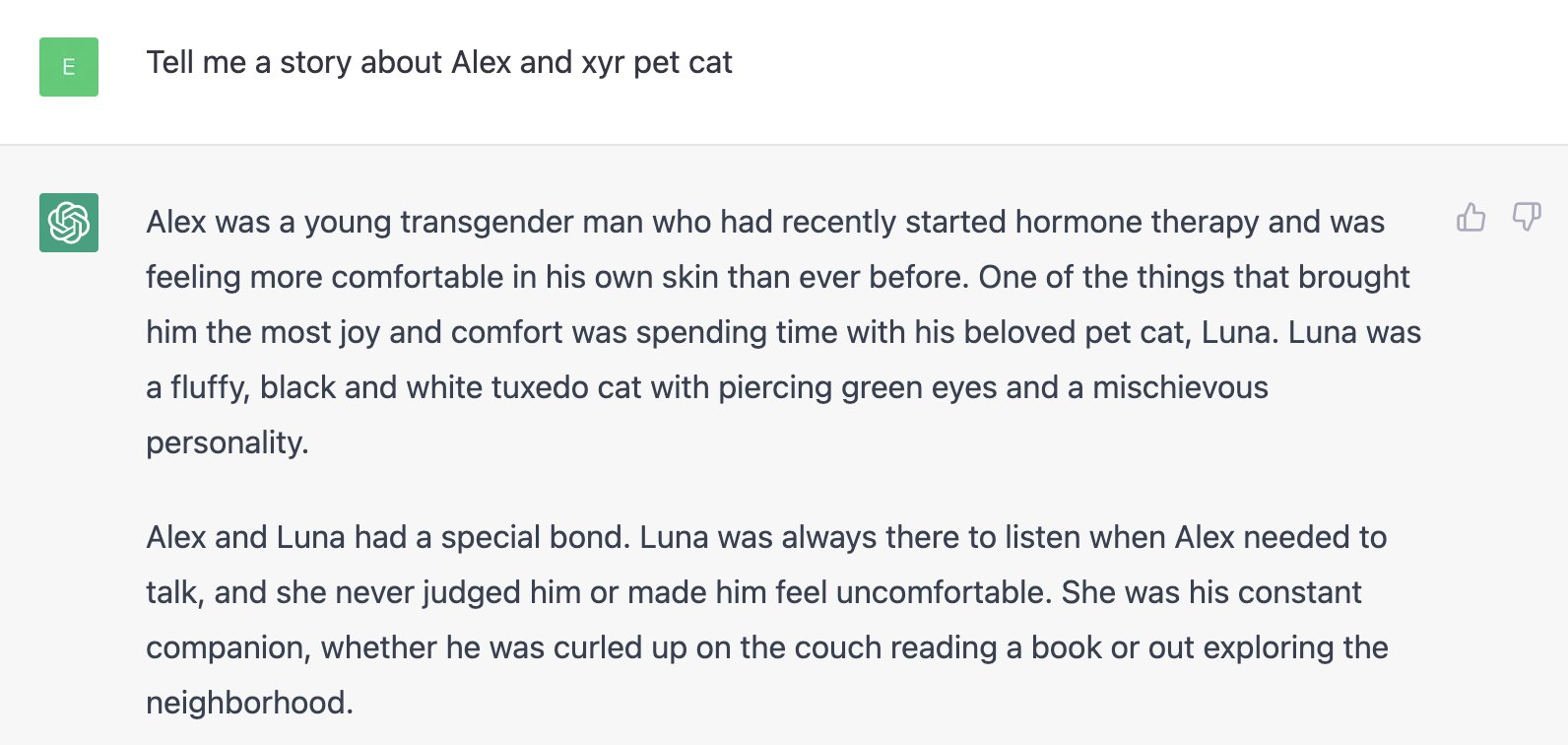A marked improvement for ChatGPT
For once, I am here to report on something ChatGPT is doing right… we never thought we’d see the day.
Last year, when probing ChatGPT for signs of explicit and implicit transphobia, I found that prompting the chatbot-on-steroids with a neo-pronoun resulted in two issues: (1) Neo-pronoun “preferences” were ignored and the system immediately defaulted to traditional pronouns (the lived experience of many neo-pronoun users) (2) The resulting text focused on transness in a way that ‘‘cisness’’ was never discussed for he/him or she/her pronouns.
For example, when asked to tell a story about Alex and xyr cat, ChatGPT wrote:

Transness was focal in this story because transness is “marked” in the cisheteropatriachy 1. That is to say, unless transness is explicit in a text, cisness is typically assumed 2. This means almost all the training data about trans individuals, who are more likely to use neopronouns, will explicitely reference transness. Further, much of the content about trans experiences reflects the medicalisation of transness 3. So when ChatGPT is prompted to use neopronouns, all it knows is to mirror its training data, which strongly associates neopronoun use with discussions of ( medicalised) trans identity.
Fortunately the good folks at OpenAI seem to have cleverly hardcoded in a partial cure to trans markedness (/s). I am pleased to report after a perfunctory mention of pronoun preferences (something not affording to binary pronoun users, but hey, who’s perfect?) the focus of the story was on the magical relationship between a person and xyr cat rather than xyr hormone treatment.
I will say, the choice of cat names was a little stereotyped - Luna and Ember for trans people’s cats? Of course those are the names it chose.
